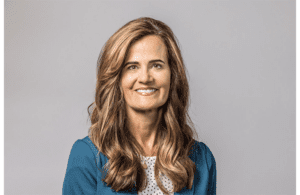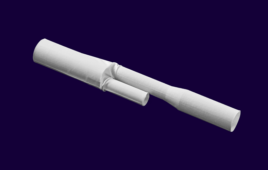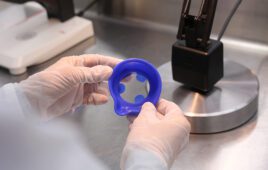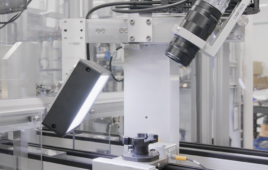 Jill Ellison, VP of Operations for Confluent Medical Technologies, leads Operations at the Orange County, CA and Chattanooga, TN facilities. She is a proud mother of 3 grown children. Jill brings more than 20 years of medical device experience with a focus on Operations Management, Engineering and Continuous Improvement. Prior to Confluent, Jill was a Sr. Director of Operations for Integer, where she was responsible for profitability, strategic planning, new product introduction and customer service for multiple sites. Jill’s sites at both Confluent Medical and Integer have consistently seen double digit revenue growth year-over-year along with year-over-year improvement on key KPIs. Prior to working in the medical device field, Jill held key engineering and leadership positions with Dow Chemical and the Dial Corporation. Jill holds a BS in Chemical Engineering from South Dakota School of Mines and Technology and is a certified Six Sigma Black Belt.
Jill Ellison, VP of Operations for Confluent Medical Technologies, leads Operations at the Orange County, CA and Chattanooga, TN facilities. She is a proud mother of 3 grown children. Jill brings more than 20 years of medical device experience with a focus on Operations Management, Engineering and Continuous Improvement. Prior to Confluent, Jill was a Sr. Director of Operations for Integer, where she was responsible for profitability, strategic planning, new product introduction and customer service for multiple sites. Jill’s sites at both Confluent Medical and Integer have consistently seen double digit revenue growth year-over-year along with year-over-year improvement on key KPIs. Prior to working in the medical device field, Jill held key engineering and leadership positions with Dow Chemical and the Dial Corporation. Jill holds a BS in Chemical Engineering from South Dakota School of Mines and Technology and is a certified Six Sigma Black Belt.
What initially attracted you to the medtech industry? How has your perspective on the industry evolved over the course of your career?
I was initially attracted to the industry due to job stability/recession proof due to essential nature. After working in the industry for just a short time, I realized the impact we as employees make in the world. We are helping design and manufacture medical devices that are life-saving and this is why I have stayed in the industry over 20+ years. I take a lot of pride knowing we are making a difference in the world. We are helping people live better lives and, in some cases, saving lives.
As a seasoned professional in the industry, how do you envision the future of medtech? What emerging technologies or trends do you believe will have the most significant impact?
The industry will continue to push capabilities making medical devices less invasive for the patient for quicker recovery. This typically means smaller diameter, thinner walls and the ability to access more torturous parts of the anatomy.
From your experience, what are some of the key challenges that medtech engineers are likely to face in the coming years? How can professionals in the industry prepare for and navigate these challenges effectively?
New manufacturing technologies and techniques will need to be developed to keep up with the industry. We are at the edge of our current manufacturing technologies meeting our needs. Automation/robots, new polymers/materials, and new processing/assembly techniques will be needed.
As technology continues to advance rapidly, how do you think medtech engineering can stay ahead of the curve and ensure they are equipped with the necessary skill and knowledge?
From an engineering standpoint: I think knowledge in automation, material/polymer science, DMAIC/problem solving and good soft skills are key!
From a broader perspective, how do you see the role of medtech engineering in shaping the future of healthcare? What impact do you anticipate it will have on patient care and outcome?
From the design engineering standpoint, continue to see how treatment of common medical conditions can be less invasive. This means easier and faster recover to the patient. It will require improved or new manufacturing technologies along with an expansion of available materials. Smaller ID/OD of devices, push ability/torque ability, material capabilities and compatibility along with the integration of electrical or sensing devices; very complex/smart catheters.
How do you think diversity and inclusion can contribute to the advancement of medtech engineering? How do you foster a culture of innovation within your team or organization?
Diversity and inclusion in engineering is not just about fairness or representation; it’s a key driver of innovation. Diverse teams bring a wider range of ideas, perspectives, and approaches to problem-solving, leading to more creative and effective solutions. Innovation is one of Confluent Medical’s Company Values. Key to our Mission Statement; creating a work environment of growth, leadership and innovation in which our employees can impact the world by doing work that matters! A culture of continuous improvement allows team members to make mistakes but then learn and grow otherwise you damper innovation. Leaders need to encourage collaboration and empower their employees.




